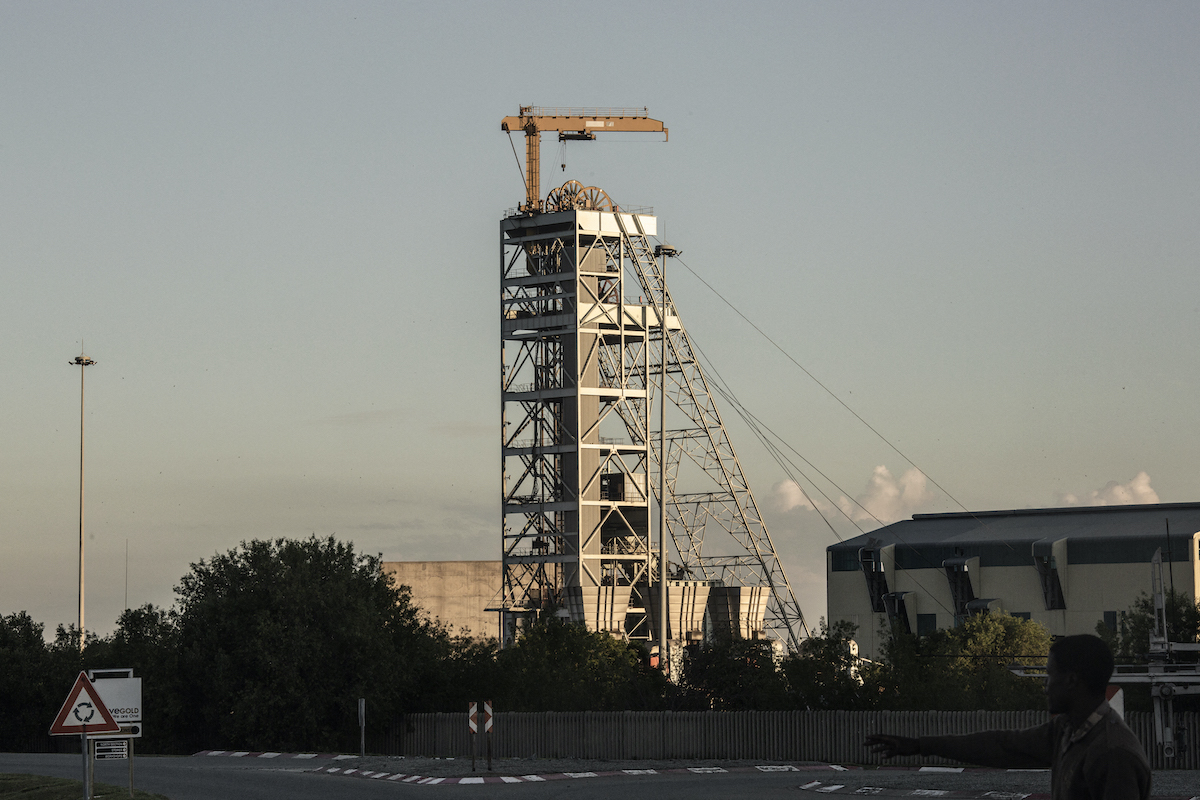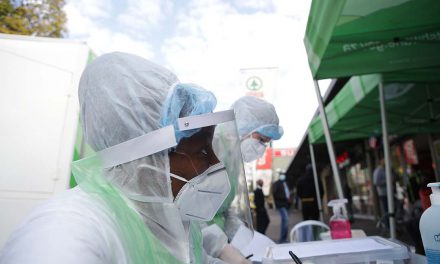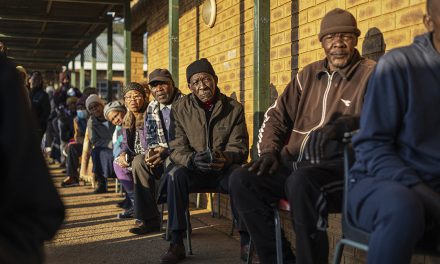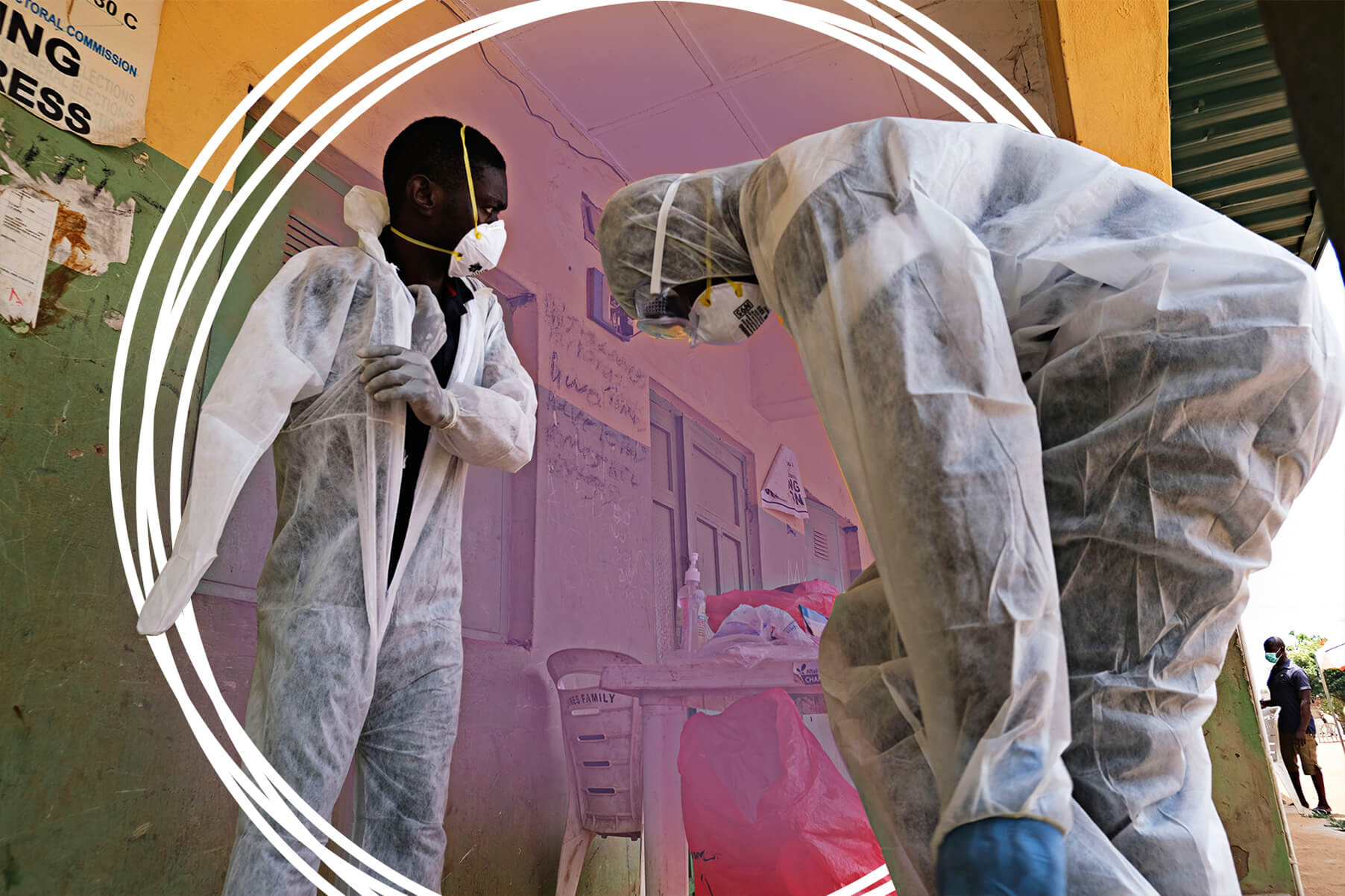Background
The 23rd June 2020 marked exactly 100 days since the first cases of COVID-19 were reported in Ghana. Before the formal announcement (13th March 2020) of the first two cases in Ghana involving returning residents from Norway and Turkey, Ghanaians were already apprehensive given the awful news on COVID-19 around the globe. There was sustained pressure on the government to close Ghana’s entry borders and institute measures to possibly avoid an incidence of COVID-19 or curtail any possible spread should a case be recorded.
However, since recording the first cases in March, the country has seen a sharp rise in infections across almost all its 16 administrative regions. The Greater Accra Region (capital – Accra), Ashanti Region (capital – Kumasi) and Central Region (capital – Cape Coast) have for some time been the hottest spots in infections. On 23rd June, 100 days since the announcement of the novel virus (SARS COV 2 or COVID-19), Ghana’s case count stood at 14,568 out of which 10,907 had been declared recovered and sadly, 95 officially declared deaths.
Imposition of restrictions
The Ghana government, led by His Excellency President Nana Addo Danquah Akuffo Addo, imposed partial lockdown restrictions on cities like Accra, Kumasi and the densely populated town of Kasoa in the Central Region of Ghana after they emerged as hot spots for the spread of COVID-19. This action was supported by the Imposition of Restrictions Act (2020), Act 1012. However, 21 days into the lockdown, the government was forced to lift the partial lockdown as businesses and individuals were at risk of losing their livelihoods. Reasons given by the President at the time for the lifting of the partial lockdown and the gradual removal of some restrictions were said to have been informed by science. Further commentary from high profile officials in the executive arm of government, particularly the Finance Minister of Ghana, suggested, however, that the decision was based on the economic impact of the pandemic.
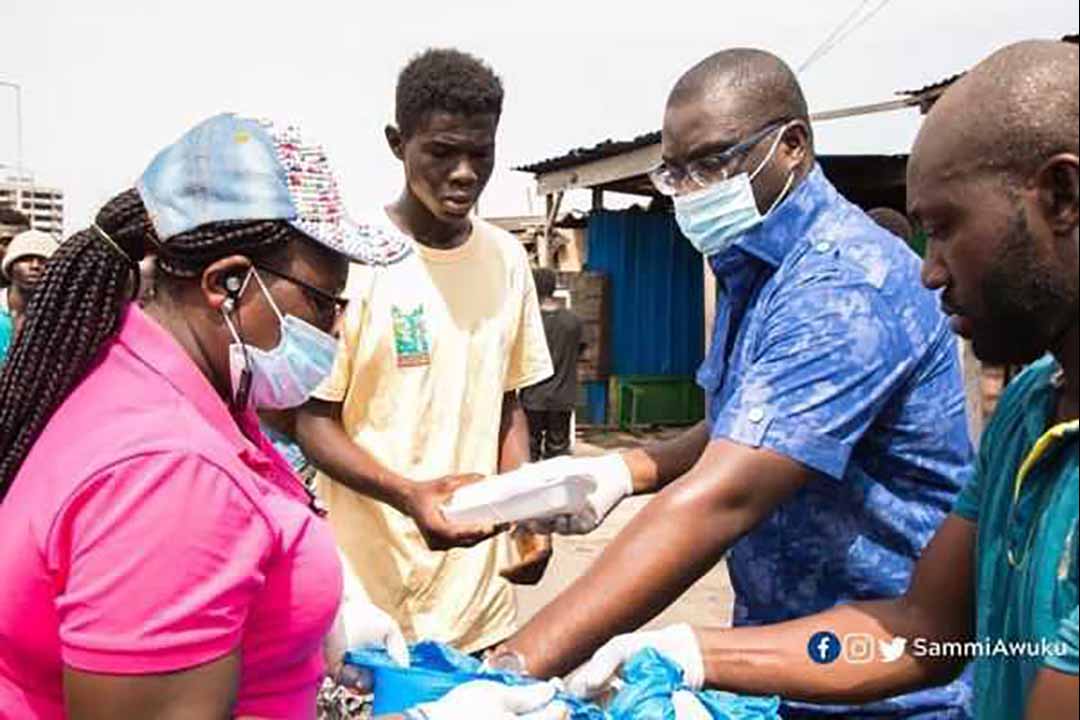
Food being shared to vulnerable groups and people in need during COVID-19 lockdown.
Impact of COVID-19 and its related restrictions
COVID-19 has dealt a huge blow to all aspects of life in Ghana. The government had to realign its budget to contain the pandemic to the detriment of other sectors needing urgent improvements. Health infrastructure has come under serious pressure with the need to have isolation and treatment facilities across the country. The already inadequate number of health professionals have been put under pressure to deliver care and support to the thousands of infected persons. Ghana’s testing facilities have had to be increased in number and their capacity enhanced in order to respond to the volume of tests required. The over 87% informal sector economic actors in Ghana have had their livelihoods threatened with weeks of shutdowns. Workers have lost jobs and incomes in the process, with some owed salaries running into months due to their employers’ inability to make necessary turnovers. From religion to recreation, sports and travels, the ordinary Ghanaian’s life has dramatically changed over the last 100 days, with the future remaining largely uncertain.
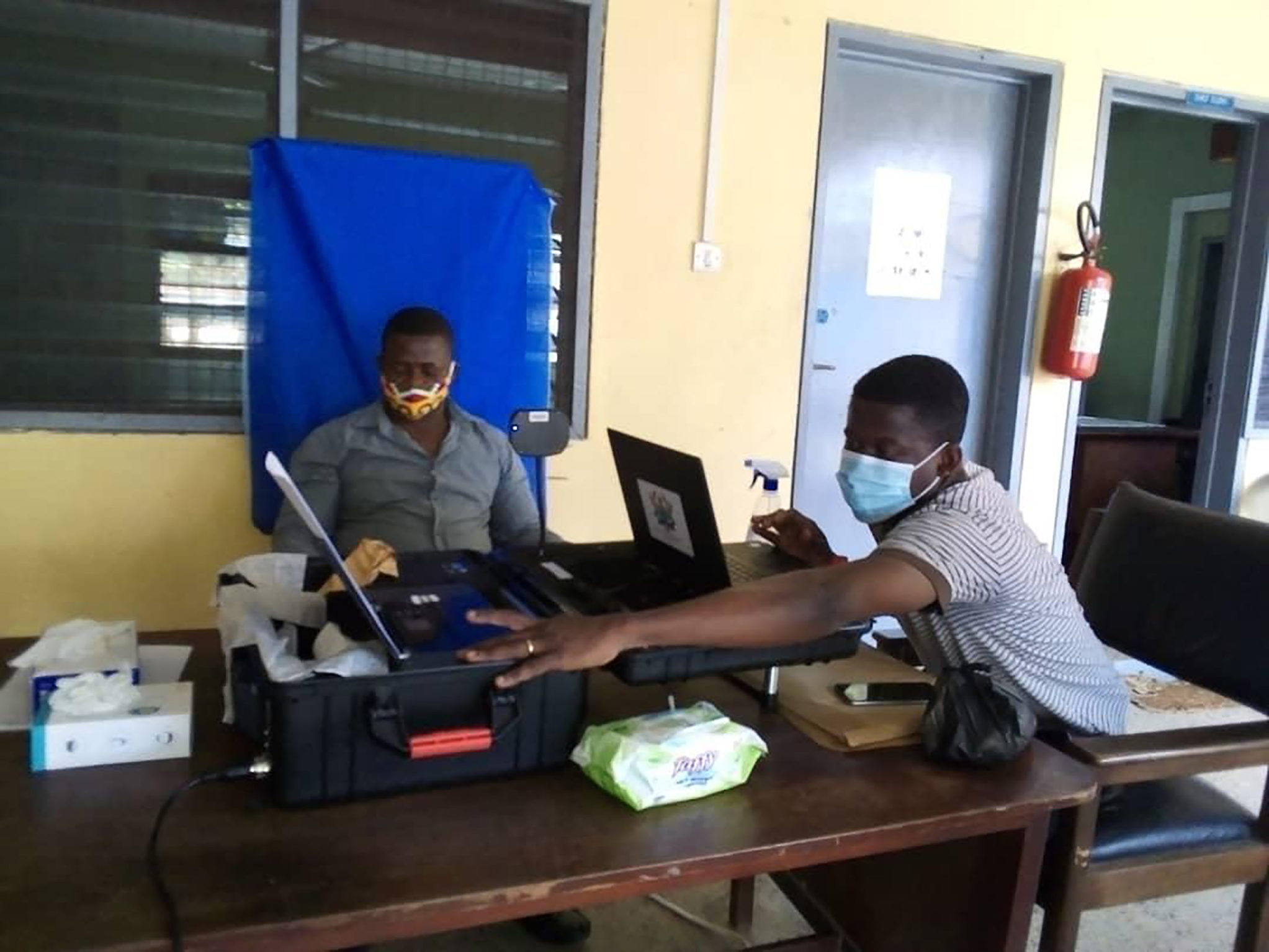
Ghana’s EC conducts limited registration ahead of the December 7 general polls.
COVID-19 & vulnerable groups
The 21-day partial lockdown in Accra, Kumasi and Kasoa led to a disturbing development in the cry by residents for support to meet basic needs such as food, water and shelter. With law enforcement officers deployed on the streets of urban settlements to enforce the President’s directives under the Imposition of Restrictions Act, residents both poor and rich were in the same boat in having to obey the directives. However, scores of residents in certain deprived communities defied the orders to come onto the streets in search of food. The government was forced to institute the costly measure of providing meal packages to affected residents. The business community, religious bodies and philanthropists all joined in to provide relief for some of the people badly hit by the COVID-19 related restrictions. Petty traders, ‘Kayayeis’ (head porters), street hawkers and beggars were amongst the people badly hit by the pandemic. The plight of groups such as the disabled, widows and children with special needs, became more pronounced in the period of the 21-day partial lockdown.
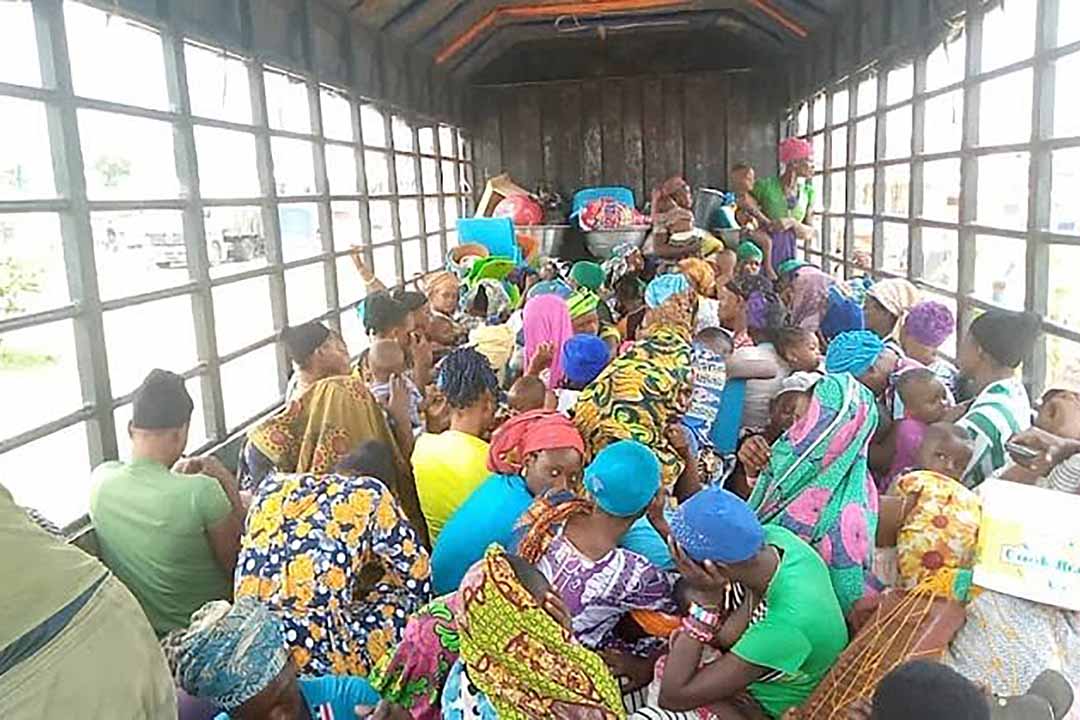
Escaping Accra lockdown
COVID-19 & Ghana’s health infrastructure
Ghana’s health infrastructure has come under a serious review following the outbreak of COVID-19, with calls from health experts and the general public for the government to create more capacity to contain the spread of COVID-19. President Nana Akuffo Addo has announced what has been described as an ambitious project, that of building 88 hospitals within one year of commencement, to boost the health infrastructure of the country. These hospitals will be situated in districts which do not currently have hospitals. Meanwhile, there are ongoing expansions of facilities in already existing health institutions in the interim.
Health infrastructure such as testing laboratories with the capacity to test hundreds and thousands of samples in a reasonable period, are being supported with new equipment, with additional infrastructure in the process of construction. Ghana’s premier testing centres, the Noguchi Memorial Institute for Medical Research and Kumasi Centre for Collaborating Research (KCCR), came under serious stress, as initially they were the only two testing facilities for the entire nation. The government, through the Ghana Ministry of Health, has recently boosted capacities of other laboratories in Tamale and Wa to take care of COVID-19 testing for the northern zone of the country.
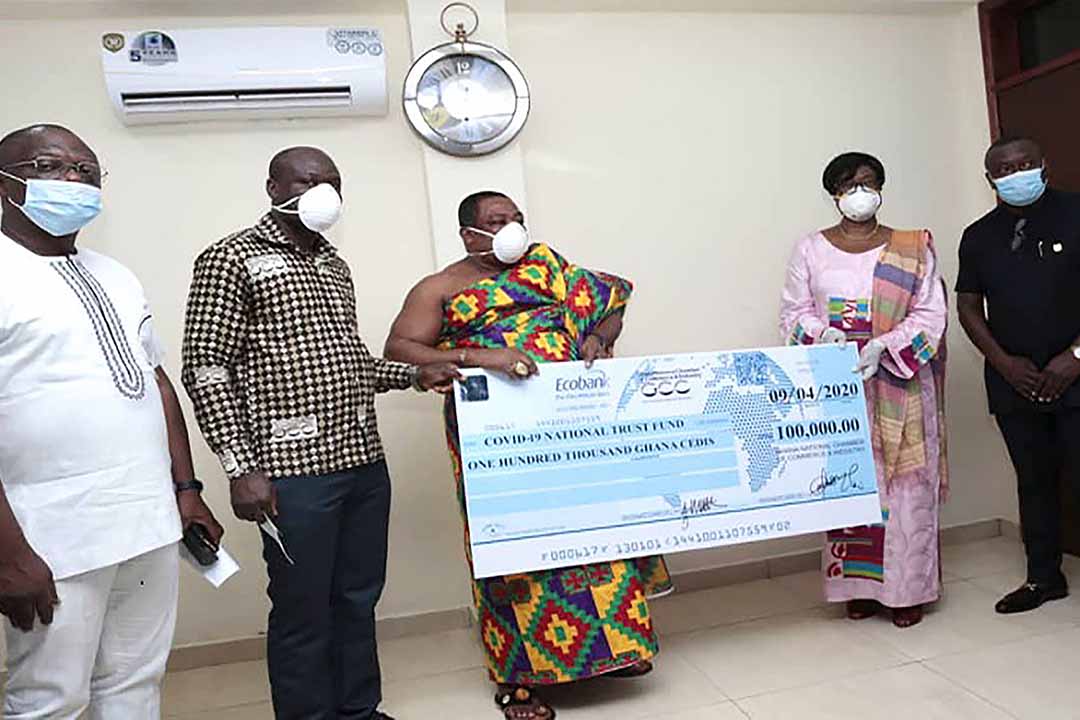
National COVID-19 Trust Fund receives donations
Government’s response to fighting COVID-19:
COVID-19 has had dire consequences on the finance and budgetary allocations of the government of Ghana. The government of the day had anticipated developing several sectors of the economy, particularly as 2020 is an election year. But the outbreak of the novel COVID-19 virus has caused serious revisions. The government, at the onset, committed a total of $100m to the fight against the pandemic. Additional measures were announced to support various aspects of the economy including:
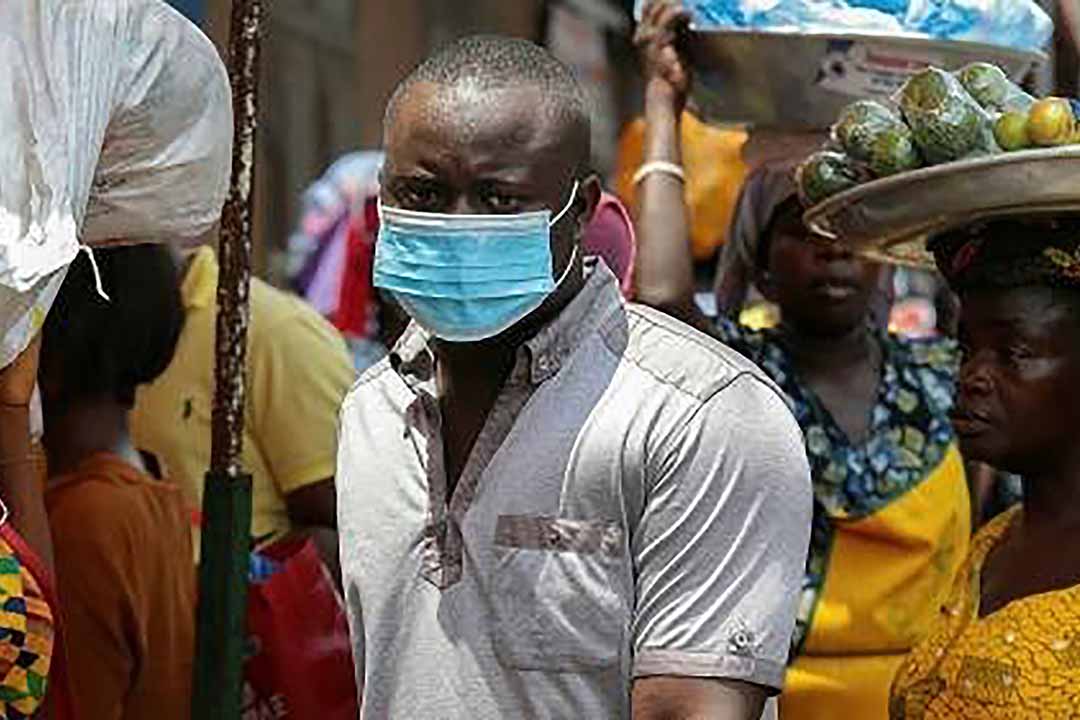
Mix reactions from the public as not all follow public protocols.
GHS 600m support to SMEs
- Three months free electricity bills for lifeline consumers and 50% reduction for all other consumers (including businesses)
- Three months free water bills for consumers with tanker water suppliers to areas not connected to the Ghana Water Company systems
- Insurance packages for all frontline health workers
- A 50% salary increment for frontline health workers
- A daily allowance for COVID-19 contact tracers
The government continues to announce incentives to bring relief to Ghanaians amid the COVID-19 pandemic. All these new measures are a cost to the country as a whole. Other development priorities may suffer due to the heavy expenditures being incurred in the health sector. One of the foremost priorities of Ghanaians, i.e. the construction and upgrade of road networks that the Akuffo Addo government had promised for the year 2020, may be difficult to achieve judging from the change in priority spending. This is even more so since the global pandemic has equally affected the economies of financiers like the government of the Republic of China, which is central to the Ghanaian government’s development agenda for roads.
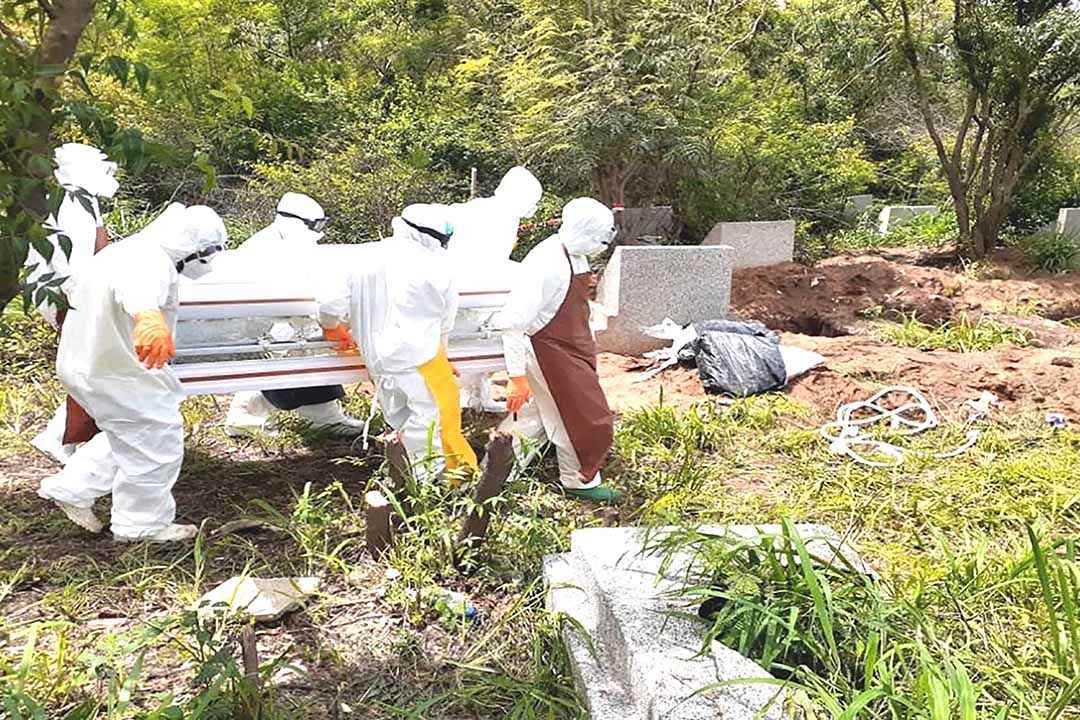
Public health professionals about to bury a COVID-19 casualty.
Gradual removal of restrictions
The decision by the Nana Akuffo Addo led administration to gradually remove restrictions has been met with mixed feelings by sections of the populace. Some have questioned the rationale behind the President’s decision given the fact that at the time of lifting the partial lockdown and some COVID-19 associated restrictions on Accra, Kumasi and Kasoa, Ghana’s case count was steadily rising. The government, led by the Ministry of Health and the COVID-19 Task Force, has always maintained that their decision was backed by science. Improved contact tracing and surveillance, with more testing capacity, were some of the reasons given for the gradual removal of lockdown restrictions as at Monday 20th April. Some non-essential businesses were allowed to open, whilst the government encouraged all to practice safety protocols. At the time, only a few regions out of the 16 administrative regions of the country had officially recorded COVID-19 cases. On the 100th day since the country recorded its first two cases, all 16 regions had recorded active cases, with calls for support to manage the situation in these regions.
The latest attempt by government to bring some normalcy to the lives of its citizens is the reopening of secondary and tertiary schools. Final year students of tertiary institutions were allowed to return to school to complete courses on the 15th June, whilst those in secondary retuned on 22nd June.
Disturbing trend
The case count of COVID-19 in Ghana is fast rising. Between 1st June and 23rd June, over 50 new deaths were officially recorded. Disturbingly, more cases of health professionals are being reported, with some casualties. The Medical Director of Kwadaso S.D.A Hospital in Kumasi lost his life to COVID-19 in the line of duty. The mayor of the twin city of Sekondi-Takoradi has also lost his life as a result of COVID-19 related illness, while over 13 staff and Members of Parliament are reported to have contracted the disease. Ghana’s Health Minister Hon. Kwaku Agyeman-Manu, who has been leading Ghana’s fight against COVID-19, has reportedly contracted the disease and is currently being managed at home. These scenarios are indicative of the devastating effect the COVID-19 pandemic is having on the lives and development of the nation.
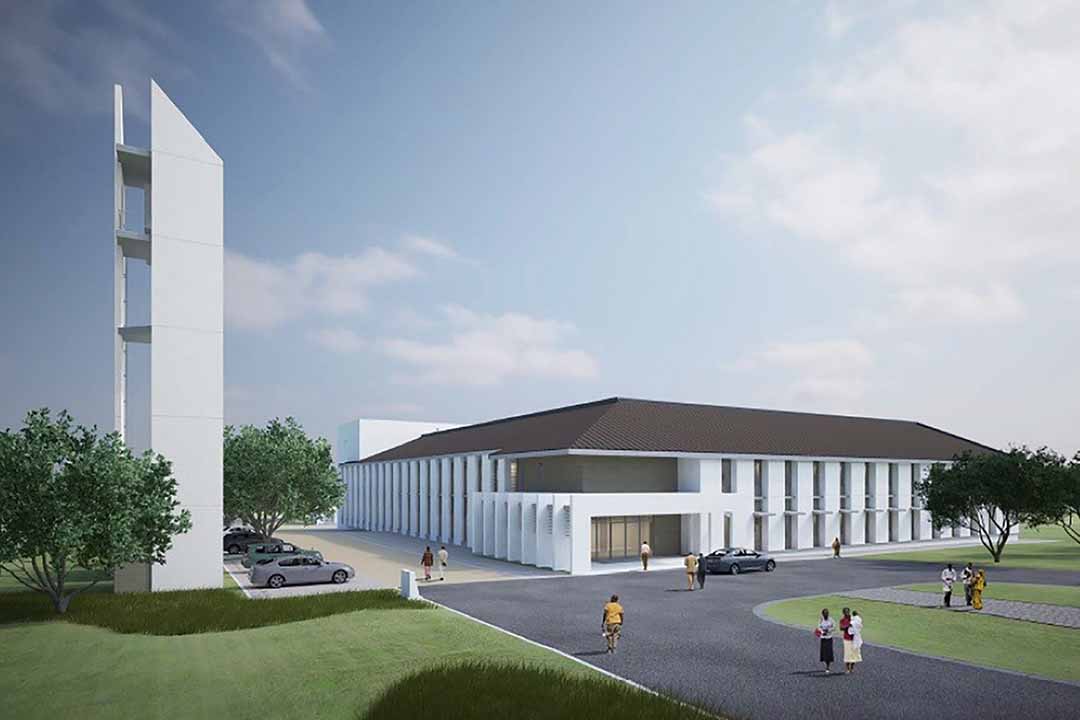
Nuguchi Memorial Research Institute, Accra.
Imposition of new restrictions
The continual infection of hundreds and thousands of Ghanaians has led to the government announcing new measures to help curtail the spread of COVID-19. The mandatory wearing of face masks is the latest of such measures. Supported by an Executive Instrument (EI), it is now an offence for anyone in Ghana to be in public without a face covering (mask) and the punitive measures attached to the flouting of this regulation are so severe that they have been described by some as draconian. An offender risks being imprisoned for a period up to 10 years or fined a sum from GHS 12,000.00 to GHS 60,000.00. There are ongoing discussions in the public space for a more enforceable action to be adopted rather than what has been prescribed by the EI 164.
Borders remain closed
Ghana’s entry borders remain closed, although there has been a gradual removal of the COVID-19 related restrictions. The measure was part of initial strategies to stop the importation of the COVID-19 virus into the country, as has been instituted by several countries around the globe. This measure, though necessary, continues to put untold pressure and hardship on individuals and businesses. Several Ghanaians continue to make a case, from their current places of domicile outside Ghana, for the government to assist them to return home. Some efforts have already begun in this regard, with some Ghanaians recently evacuated from some Arab nations. Certain Missions in Ghana have also initiated steps to help some of their citizens who were affected by the lockdown in Ghana to return home. The governments of Canada, the United States of America and the United Kingdom are some of the countries that have since repatriated their nationals from Ghana.
Cargo and passenger movement across Ghana’s borders (both air and land) have been greatly affected. During the lockdown, only goods classified as essentials (food, drugs and other consumables) were allowed to come into Ghana. There were reported cases of haulage trucks stuck at the borders of Ghana’s neighbouring countries, with peoples’ investments getting wasted. Ghanaian businessmen and women continue to count their losses due to their inability to bring in their imports, as countries like China, USA and several European countries also shut down their economy to fight the virus.
COVID-19 & Election 2020
Ghana will be going to the polls on 7th December 2020 to elect a new president and Members of Parliament,. The stakes are high, with political parties gearing up to wrestle for power. COVID-19’s negative impact on Ghana’s 2020 General Elections cannot be overemphasized, although all factions seem to have agreed that the elections must come off whatever be the case. Ghana’s Independent Electoral Commission (EC) has also assured electorates it will institute the strictest of protocols to ensure the non-spread of the virus during this exercise. However, a thorny issue that was raging on even before the country recorded its first cases of Covid-19 on 23rd March, is the EC’s uncompromising resolve to compile a new voters’ register. Whilst the opposers of this exercise raised concerns initially about legitimacy and timing of a new register (the case is currently being settled in the Supreme Court of the land), COVID-19 has now introduced an even more uncertain situation, leaving people concerned about whether or not they will get registered.
COVID-19 & the can-do spirit
It is often said that “scarcity is the mother of all inventions”, and this saying has been exemplified in Ghana’s COVID-19 fight. With the realisation that the pandemic was having worldwide effect and countries that used to supply certain essentials to Ghana would not be able to do so since they have need for these essentials themselves, the country went to work. The President announced the commencement of local production of PPEs and other essentials. Businesses sacrificed parts of their production lines to produce needed medical items to support the national fight. Beverage companies started producing local sanitizers after the population complained of the exhorbitant prices being charged for imported ones, nose masks were sewn locally, and research institutions manufactured local ventilators and automatic sanitising machines among others.
The private sector has come on board to supply much needed PPEs to health centres across the country, and in some cases have even put up health infrastructures to serve as isolation and treatment centres. Religious institutions have likewise joined in to supply some of these items and offered their facilities as holding centres for infected persons. All these efforts go to support the assertion that the African is capable of managing his or her own affairs.
Conclusion
The government continues to announce other incentives to bring relief to Ghanaians amid the COVID-19 pandemic. All these new measures are a cost to the country as a whole as other development priorities may suffer due to the heavy expenditures being incurred in the health sector. The future remains very unpredictable so long as a cure or vaccine remain yet to be found for the treatment of COVID-19. But good governance must continue unabated.
Verifiable Sources
Authors:
Edward Teye Sarpong
Senior Research officer – GGA WA
Gifty Obeng
Programs/M&E Manager – GGA WA



